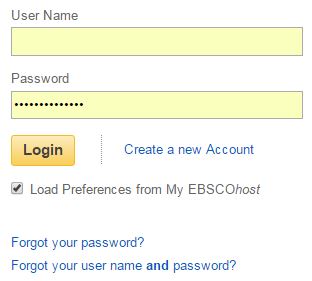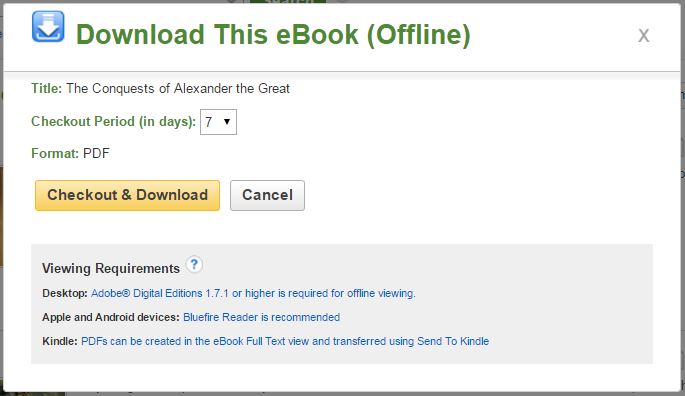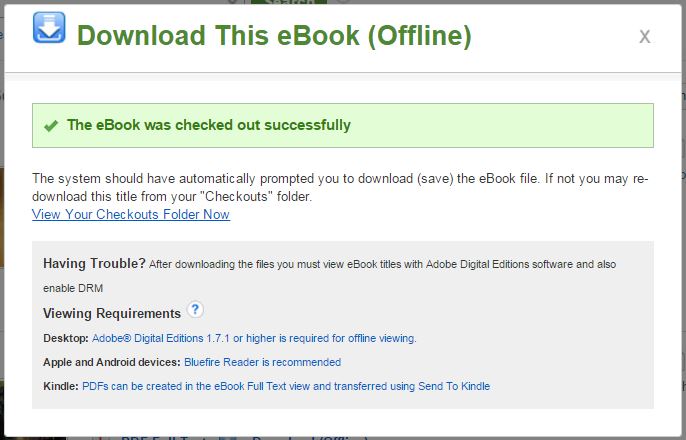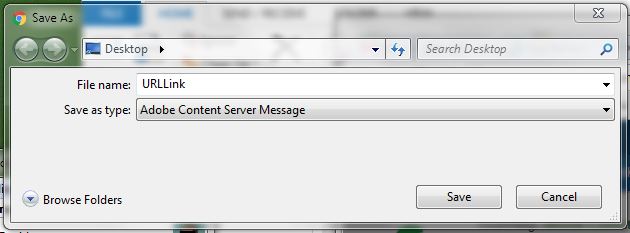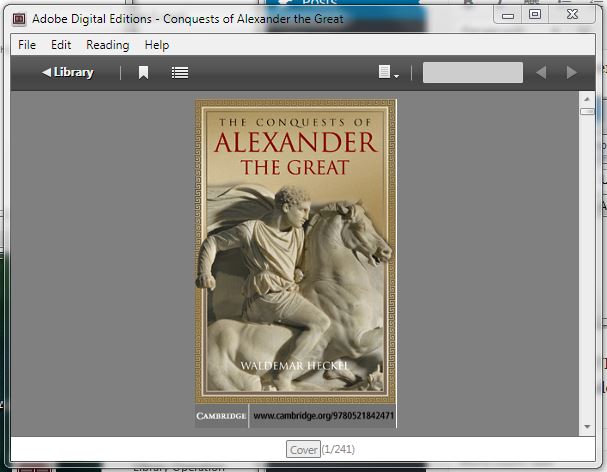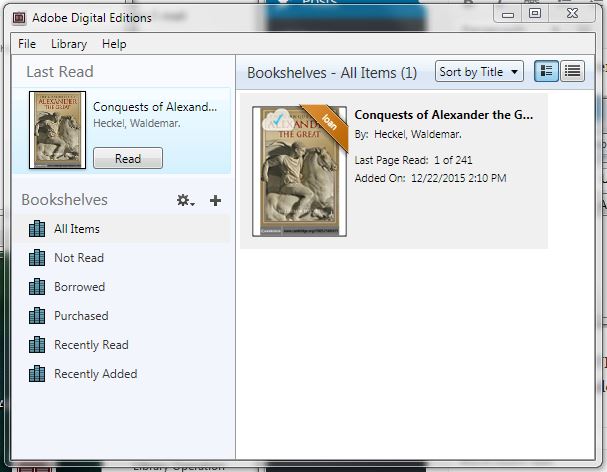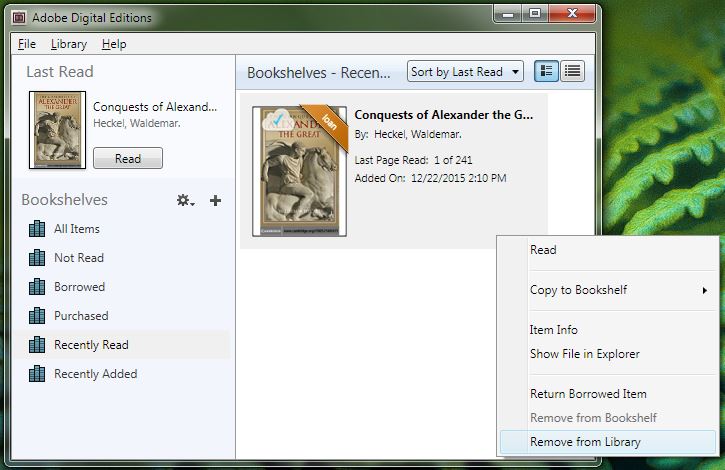The following books (134 items) were received into the Library collection for both the Welshimer and Seminary Libraries through budgeted funds and expense accounts and by donation from October 2025 to January 2026.
Ebooks
The fearless Christian university
Fontes Nicaenae Synodi : the contemporary sources for the study of the Council of Nicaea (304-337)
Spiritual Theology A Systematic Study of the Christian Life
They flew : a history of the impossible
Seminary Library
Lending
The 1837 debate on Roman Catholicism between Bishop John Purcell and Alexander Campbell: the world is large enough for us all
Attunement: the art and politics of feminist theology
Becoming God’s family: why the Church still matters
Christendom: the triumph of a religion, AD 300-1300
Church for everyone: building a multi-inclusive community for emerging generations
Circle of hope: a reckoning with love, power, and justice in an American church
Constructing exile: the emergence of a biblical paradigm
Contextual theological interpretation: an integrated model for reading the Bible
Forgiveness: an alternative account by Matthew Ichihashi Potts
Friendship or enmity?: the Christian and the world in the letter of James
From pulpit to public square: faithful speech beyond church walls
Grains of wheat: suffering and Biblical narratives
Gregory of Nyssa: on the Hexaemeron: text, translation, and essays
A hermeneutic of imagination: unlocking scripture’s full potential
Hermeneutics: principles and processes of biblical interpretation
Homilies on Psalms 36-38 by Origen, Michael Heintz
The image of God: the problem of evil and the problem of mourning
James and Galatians by Scot McKnight and Becky Castle Miller
The letters to Philemon, the Colossians, and the Ephesians: a socio-rhetorical commentary on the captivity Epistles by Ben Witherington
Liberating people, planet, and religion: intersections of ecology, economics, and Christianity
Mere Christian hermeneutics: transfiguring what it means to read the Bible theologically
The metaphysics of Christology in the late Middle Ages: William of Ockham to Gabriel Biel
Mission, race, and empire: the Episcopal Church in global context
Natural light in Medieval churches
Nicaea 325: reassessing the contemporary sources
Nicaea and the future of Christianity by George E. Demacopoulos and Aristotle Papanikolaou
Prophets beyond activism: rethinking the prophetic roots of social justice
The Routledge companion to Eve
Scripture and the authority of God: how to read the Bible today
Silenced: the forgotten story of progressive era Free Methodist women
Social Catholicism for the Twenty-First Century?
Theatrics in patristic preaching and biblical exposition
The theological imagination: perception and interpretation in life, art, and faith
The theology of fear in Thomas Aquinas’s Summa theologiae
Thinning the veil: encountering Jesus Christ in the Book of Revelation
United to Christ, walking in the Spirit: a theology of Ephesians
We follow Christ: helping women to discern God’s call
Writings on the Apocalypse by Gregory, Cassiodorus, Francis X. Gumerlock, Mark DelCogliano, and T.C. Schmidt
New Testament Seminar
Acts: an Interpretation Bible Commentary by Matthew L. Skinner
Babylonian Jews and Sasanian imperialism in late antiquity
Creating sacred places in first century Corinth
Empowering the people: Jesus, healing, and exorcism
Ezra-Nehemiah by Deborah Ann Appler and Terry A. Smith
First Nations Version Psalms and Proverbs: an Indigenous Bible translation
Preaching from the cross: Paul’s theology of proclamation
Re-reading household relationships christologically: Ephesian, empire and egalitarianism
Romans by Christian Eberhart, Mary Ann Beavis, and Barbara E. Reid
The Second Testament: a new translation by Scot McKnight
T & T Clark handbook to social identity in the New Testament
Wisdom of Solomon by Mark Giszczak
Archives
Creating sacred places in first century Corinth by Alisha N. Paddock
Welshimer Library
Lending
After the end: Cold War culture and apocalyptic imaginations in the twenty-first century
AI & I: an intellectual history of artificial intelligence
AI morality by David Edmonds
America’s imagined revolution: the historical novel of Reconstruction
America’s religious history: faith, politics, and the shaping of a nation
Believability: sexual violence, media, and the politics of doubt
Blessing America first: religion, populism, and foreign policy in the Trump administration
Bright circle: five remarkable women in the age of Transcendentalism
The Cambridge companion to literature in a digital age
Campus misinformation: the real threat to free speech in American higher education
The Christmas collection: 53 songs for classical singers: low voice
Contemporary Aristotelian ethics: Alasdair MacIntyre, Martha Nussbaum, Robert Spaemann
Contemporary Iran by Museum für Gestaltung Zürich, Bettina Richter, Majid ʻAbbāsī, and Maryam Razi
The creative self: beyond individualism
Dante’s Divine comedy: a biography by Joseph Luzzi
Democracy, theatre and performance: from the Greeks to Gandhi
Digital art: 1960s-now
Digital Victorians: from nineteenth-century media to digital humanities
Documents of the Christian church by Henry Bettenson and Chris Maunder
Early modern literature and the bodies of a reformed Eucharist
The ecological plot: how stories gave rise to a science
The emperor and the elephant: Christians and Muslims in the age of Charlemagne
Faith: a very short introduction by Roger Trigg
Genocide, the Holocaust, and Israel-Palestine: first person history in times of crisis
Geographies of travel: impressions of America in the long nineteenth century.
Glad to the brink of fear: a portrait of Ralph Waldo Emerson
A history of the Muslim world: from its origins to the dawn of modernity
Holocaust heroines: Jewish women saving Jewish children
How to be sustainable: business strategies for leading change
How women became poets: a gender history of Greek literature
Inside knowledge: incarcerated people on the failures of the American prison
Investing in children’s mental health
Johann Sebastian Bach’s “Goldberg Variations” reimagined
Liminal minorities: religious difference and mass violence in Muslim societies
Lost souls: Soviet displaced persons and the birth of the Cold War
Making algebra meaningful: a visual approach to math literacy for all
The making of European music in the long eighteenth century
The most powerful court in the world: a history of the Supreme Court of the United States
Nature-first cities: restoring relationships with ecosystems and with each other
Open scholarship in the humanities by Paul Longley Arthur and Lydia Hearn
The origin and significance of zero: an interdisciplinary perspective
Orwell’s ghosts: wisdoms and warnings for the twenty-first century
Painting with Monet by Harmon Siegel and Claude Monet
Poesis in extremis: literature witnessing the Holocaust
Policing patients: treatment and surveillance on the frontlines of the opioid crisis
Positioning women in conflict studies: how women’s status affects political violence
Precious beyond measure: a history of Korean ceramics
The quest of the historical Muhammad and other studies on formative Islam
The question of unworthy life: eugenics and Germany’s twentieth century
Religion in plain view: public aesthetics of American display
Reversed gaze: an African ethnography of American anthropology
Scholarship, community, faith: Milligan celebrates 150 years by Clinton J. Holloway and A. Lee Fierbaugh
Seeing red: Russian propaganda and American news
She played and sang: Jane Austen and music
Silent film and the formations of U.S. literary culture: literature in motion
Spaces on the spectrum: how autism movements resist experts and create knowledge
Taming the machine: ethically harness the power of AI
Teaching popular culture in the humanities classroom
Understanding and reducing anxiety in the primary school: theory and practice for building a compassionate culture for all educators and children
Unequal health: anti-black racism and the threat to America’s health
Virtue ethics in Christian perspective
Who needs college anymore?: imagining a future where degrees won’t matter
Women at odds: indifference, antagonism, and progress in late Victorian literature
Women writing musicals: the legacy that the history books left out
Youth and sustainable peacebuilding by Helen Berents, Catherine E. Bolten, and Siobhán McEvoy-Levy
Reference
Judges 13-21: a new translation with commentary by Jack M. Sasson
The new Oxford annotated Bible: New Revised Standard version with the Apocrypha: an ecumenical study Bible, 5th edition
Office Reference
Scholarship, community, faith: Milligan celebrates 150 years by Clinton J. Holloway and A. Lee Fierbaugh
Archives
King noir: the crime fiction of Stephen King by Michael Blouin (and others)

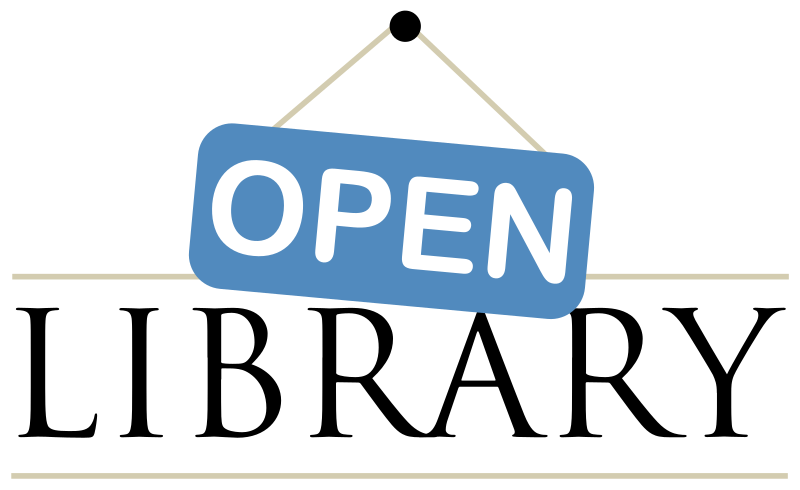

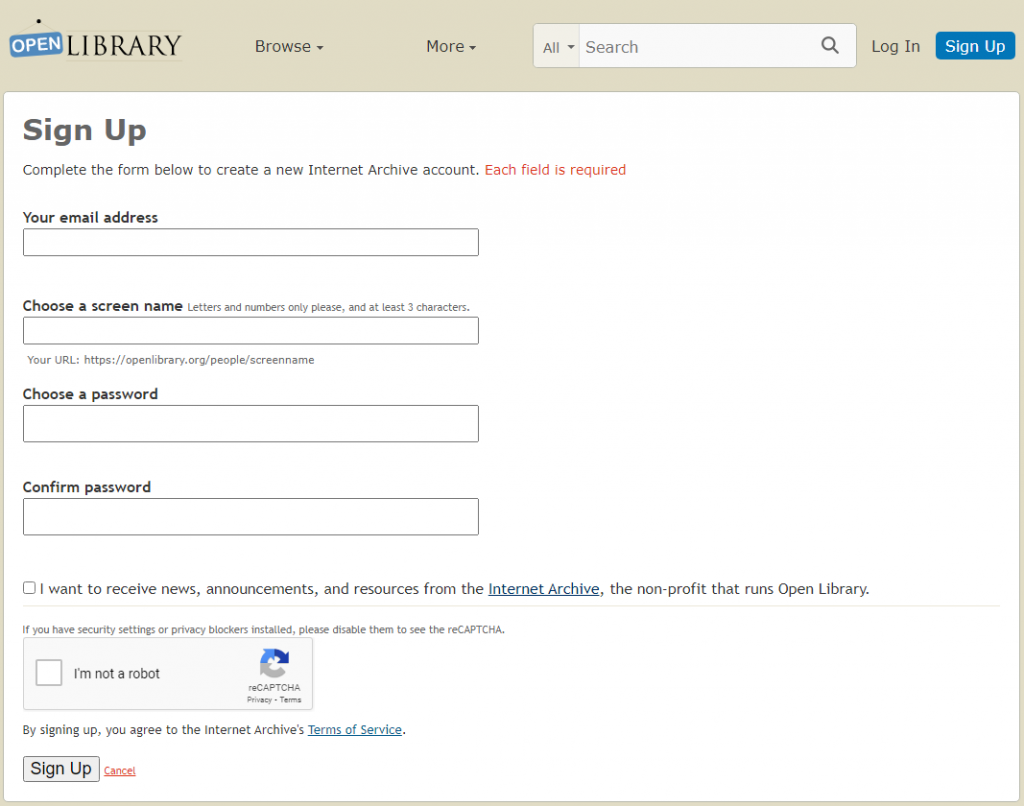

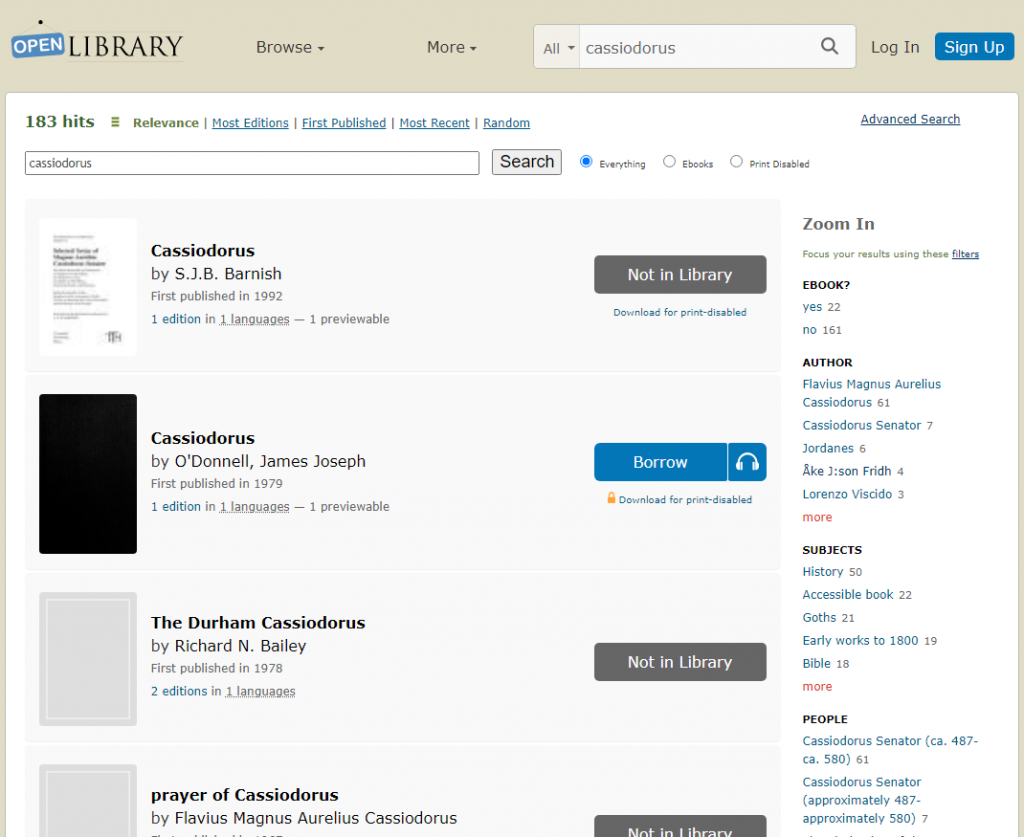
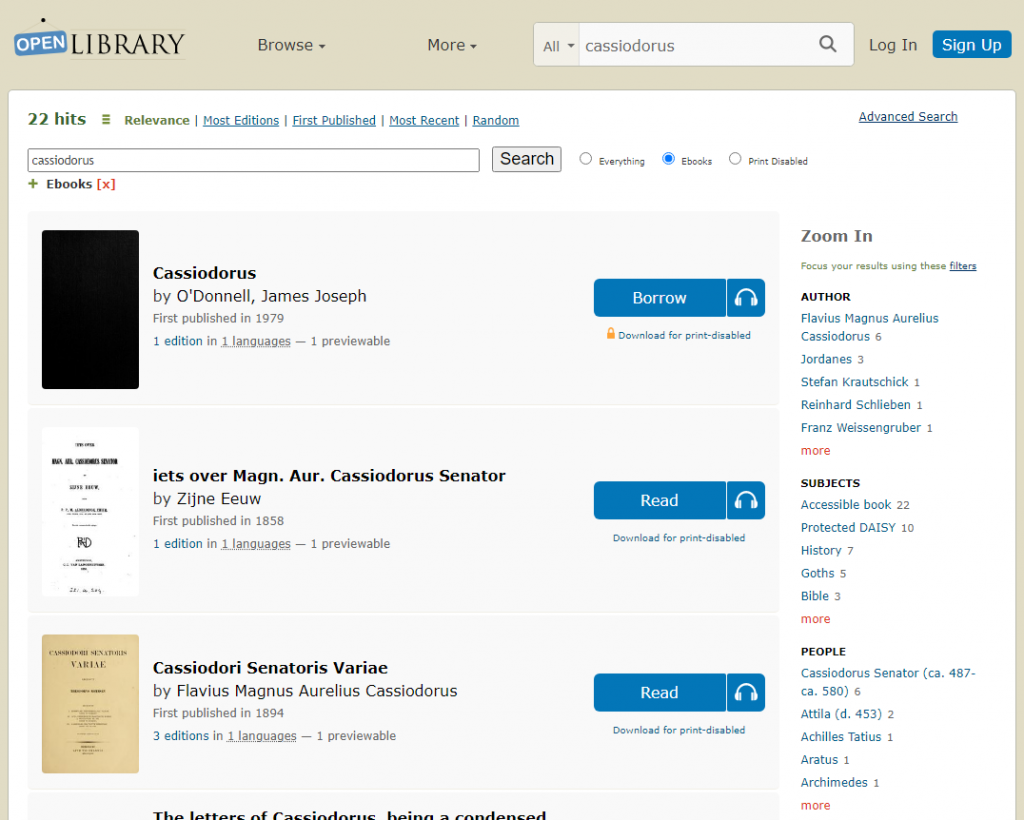

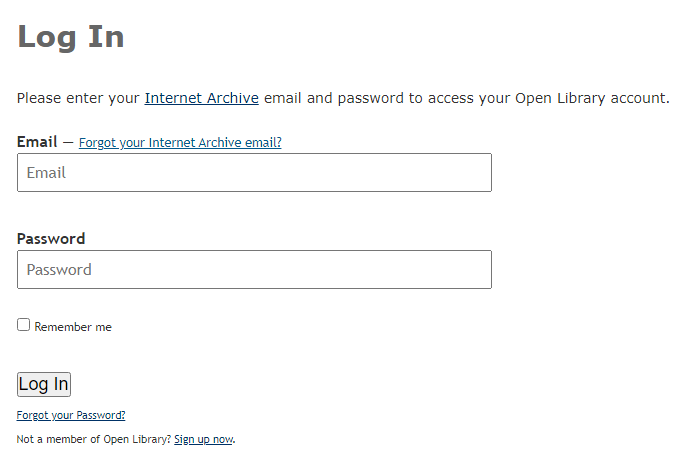
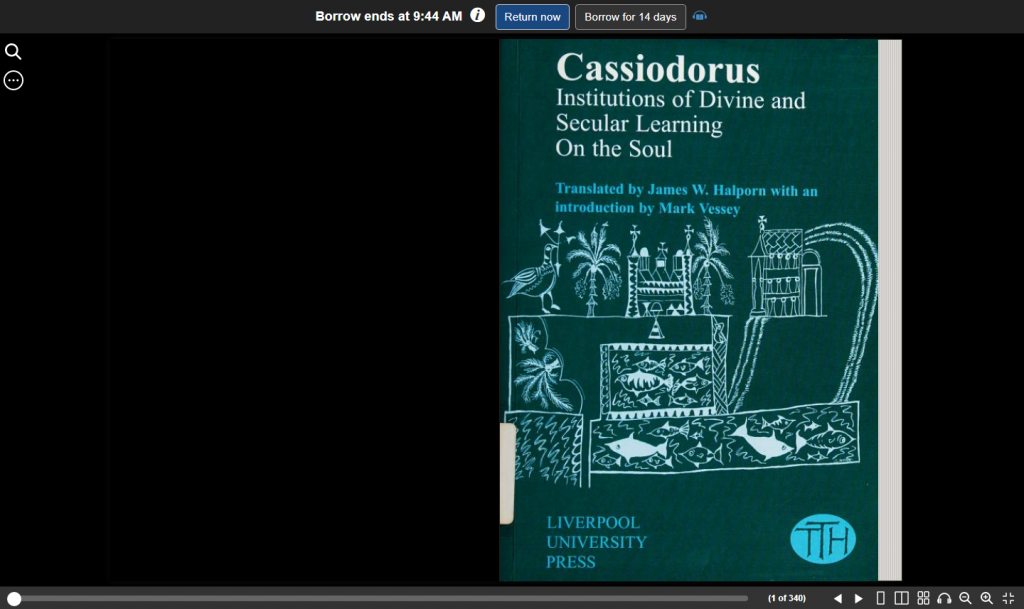

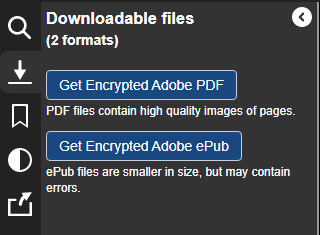
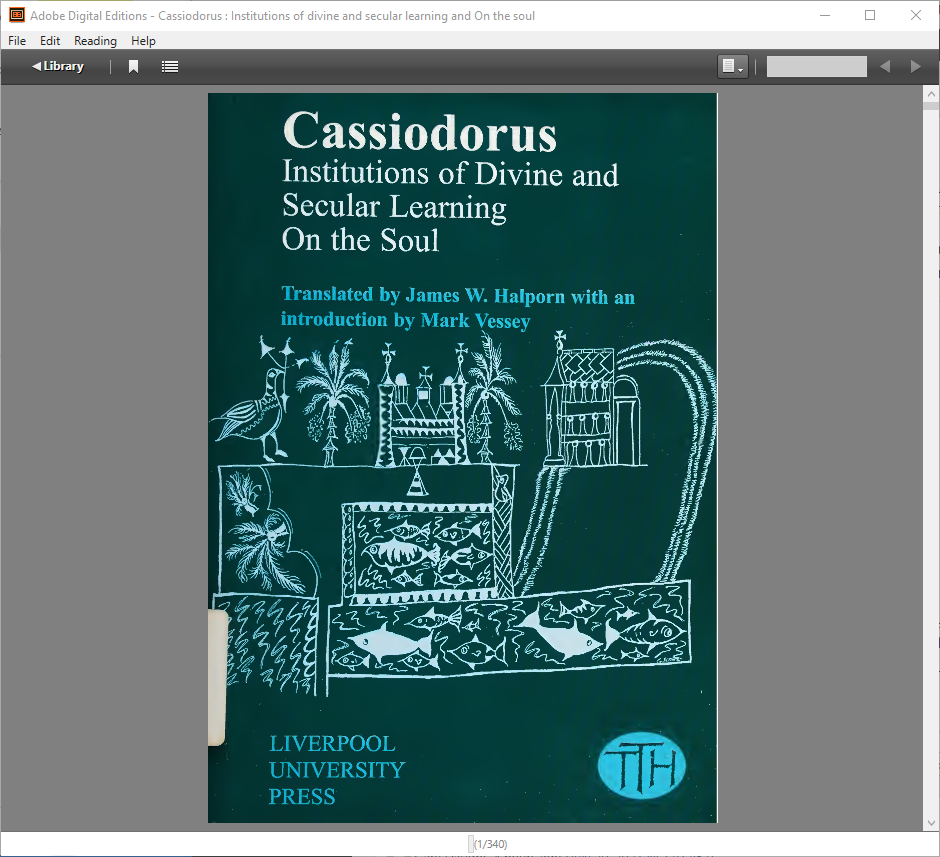
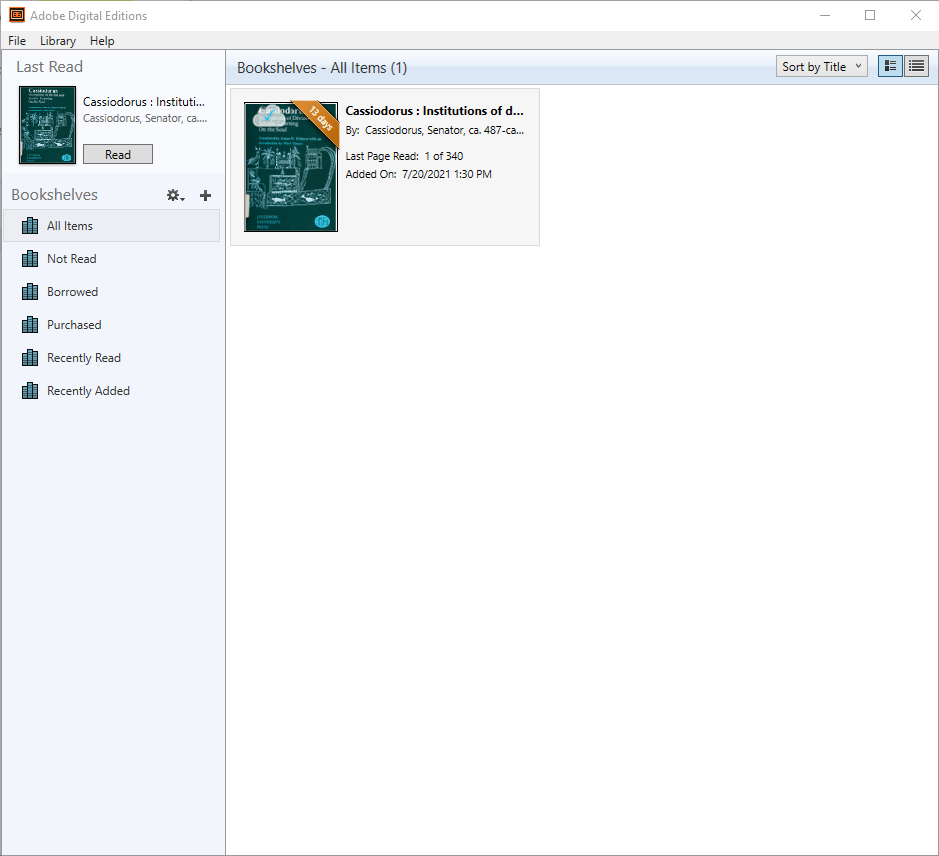
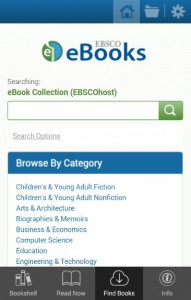 a) Launch the web browser on your mobile device. Browse to the
a) Launch the web browser on your mobile device. Browse to the 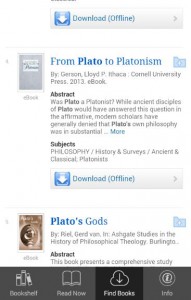 b) Search (for example) for the book entitled From Plato to Platonism by Lloyd P. Gerson. Click the title link on the search result. This takes you to the book’s record screen.
b) Search (for example) for the book entitled From Plato to Platonism by Lloyd P. Gerson. Click the title link on the search result. This takes you to the book’s record screen.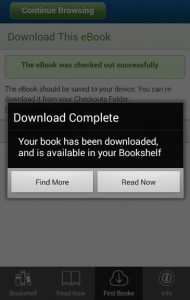 d) You should next see a screen indicating that the ebook has been successfully checked out, and the download process has begun. Assuming you have earlier downloaded and authorized Bluefire Reader (Step 3 above) the app should launch automatically. When the download is complete tap “Read Now” to open the book.
d) You should next see a screen indicating that the ebook has been successfully checked out, and the download process has begun. Assuming you have earlier downloaded and authorized Bluefire Reader (Step 3 above) the app should launch automatically. When the download is complete tap “Read Now” to open the book.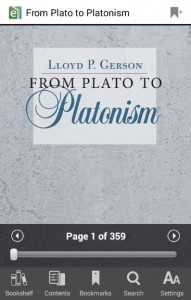 e) If you tap anywhere in the middle of the screen you are presented with various navigation and settings controls. From here you can also access the “Bookshelf” to see and open other titles that you may have previously downloaded. The bookshelf also keeps track of how many days remain in the checkout period. The title will cease to be accessible for reading once the checkout period expires. eBook files can be deleted from your device at any time.
e) If you tap anywhere in the middle of the screen you are presented with various navigation and settings controls. From here you can also access the “Bookshelf” to see and open other titles that you may have previously downloaded. The bookshelf also keeps track of how many days remain in the checkout period. The title will cease to be accessible for reading once the checkout period expires. eBook files can be deleted from your device at any time.



